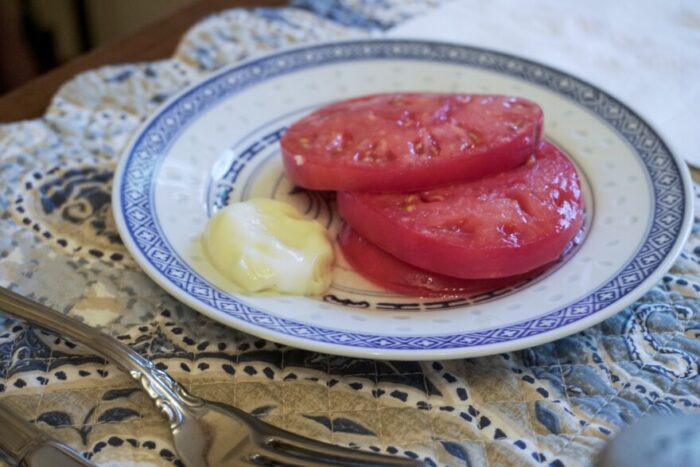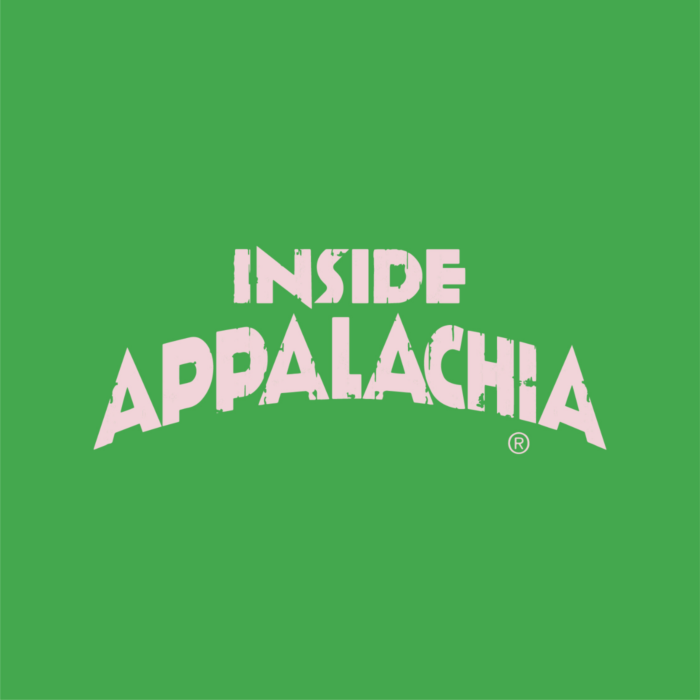Go offline with the Player FM app!
Looking Back At 2020, Inside Appalachia
Manage episode 472635326 series 134268
During a pandemic, where do you give birth?
Also, we’ll have the story of a family that cultivated an heirloom tomato in West Virginia. It took a lot of work.
And, a musical tradition brought people together — even when they couldn’t gather in person.
You’ll hear these stories and more this week, Inside Appalachia.
In This Episode:
- Become A Dad In The COVID-19 Pandemic
- Mortgage Lifter Heirloom Tomato
- The Ramp Hunter
- The Sacred Harp
Become A Dad In The COVID-19 Pandemic

Photo Credit: Glynis Board/West Virginia Public Broadcasting
In June of 2020, former West Virginia Public Broadcasting videographer Chuck Kleine and Pennsylvania resident Joe Buckland recorded their experiences with having children during the pandemic.
Buckland and his wife had a baby in mid-February, nearly a month before the lockdowns.
Kleine and his wife, Glynis Board, WVPB’s assistant news director at the time, had a baby in March, about a week after most staff were sent home.
Mortgage Lifter Heirloom Tomato

Photo Credit: Zack Harold/West Virginia Public Broadcasting
One of Inside Appalachia Host Mason Adam's friends hates tomatoes — but started growing them in 2020 because he “wanted to be part of it.” It being growing a garden, complete with a swath of heirloom tomatoes. Like a variety called Radiator Charlie’s Mortgage Lifter tomato. This heirloom breed got its start in Logan County, West Virginia.
A guy known as Radiator Charlie bred two varieties of tomato together to get a giant, juicy fruit. Word spread, and eventually so many people bought his $1 tomato plants that he was able to pay off his house. That’s how the “mortgage lifter” got its name.
But in 2020, Folkways Reporter Zack Harold brought us a story about another West Virginia tomato plant, also called “mortgage lifter.” And it’s even older.
The Ramp Hunter
A lot of big events were canceled in 2020 — high school proms, baseball games, and even family reunions — but some annual traditions would not be stopped. Like foraging for ramps.
People still went out to their favorite ramp patches in early spring. In 2020, we aired this story of a ramp-hunting expedition, led by Maryland park ranger Caroline Blizzard. Photographer and filmmaker Michael Snyder tagged along to record her for “The Mountain Traditions Project."
The Sacred Harp

Photo Credit: Kelley Libby/West Virginia Public Broadcasting
One of the oldest European musical traditions in Appalachia is shape note singing. It’s also called Sacred Harp singing. It’s sung acapella, often in large groups, with singers facing each other in a square.
Social distancing made shape note singing a lot harder, but a group figured out a way to continue to sing through the pandemic. Inside Appalachia Editor Kelley Libby — then a Folkways Reporter — filed this story in 2020.
------
Our theme music is by Matt Jackfert. Other music this week was provided by Jeff Ellis, Tyler Childers, Noam Pikelny, Mary Hott and the Cornelius Eady Trio.
Bill Lynch is our producer. Abby Neff is our associate producer. Our executive producer is Eric Douglas. Kelley Libby is our editor. Our audio mixer is Patrick Stephens. We had help this week from Folkways Editors Chris Julin and Caitlin Tan.
You can send us an email: [email protected].
You can find us on Instagram, Threads and X @InAppalachia. Or here on Facebook.
Inside Appalachia is a production of West Virginia Public Broadcasting.

349 episodes
Looking Back At 2020, Inside Appalachia
Podcast - Inside Appalachia Story Archives - West Virginia Public Broadcasting
Manage episode 472635326 series 134268
During a pandemic, where do you give birth?
Also, we’ll have the story of a family that cultivated an heirloom tomato in West Virginia. It took a lot of work.
And, a musical tradition brought people together — even when they couldn’t gather in person.
You’ll hear these stories and more this week, Inside Appalachia.
In This Episode:
- Become A Dad In The COVID-19 Pandemic
- Mortgage Lifter Heirloom Tomato
- The Ramp Hunter
- The Sacred Harp
Become A Dad In The COVID-19 Pandemic

Photo Credit: Glynis Board/West Virginia Public Broadcasting
In June of 2020, former West Virginia Public Broadcasting videographer Chuck Kleine and Pennsylvania resident Joe Buckland recorded their experiences with having children during the pandemic.
Buckland and his wife had a baby in mid-February, nearly a month before the lockdowns.
Kleine and his wife, Glynis Board, WVPB’s assistant news director at the time, had a baby in March, about a week after most staff were sent home.
Mortgage Lifter Heirloom Tomato

Photo Credit: Zack Harold/West Virginia Public Broadcasting
One of Inside Appalachia Host Mason Adam's friends hates tomatoes — but started growing them in 2020 because he “wanted to be part of it.” It being growing a garden, complete with a swath of heirloom tomatoes. Like a variety called Radiator Charlie’s Mortgage Lifter tomato. This heirloom breed got its start in Logan County, West Virginia.
A guy known as Radiator Charlie bred two varieties of tomato together to get a giant, juicy fruit. Word spread, and eventually so many people bought his $1 tomato plants that he was able to pay off his house. That’s how the “mortgage lifter” got its name.
But in 2020, Folkways Reporter Zack Harold brought us a story about another West Virginia tomato plant, also called “mortgage lifter.” And it’s even older.
The Ramp Hunter
A lot of big events were canceled in 2020 — high school proms, baseball games, and even family reunions — but some annual traditions would not be stopped. Like foraging for ramps.
People still went out to their favorite ramp patches in early spring. In 2020, we aired this story of a ramp-hunting expedition, led by Maryland park ranger Caroline Blizzard. Photographer and filmmaker Michael Snyder tagged along to record her for “The Mountain Traditions Project."
The Sacred Harp

Photo Credit: Kelley Libby/West Virginia Public Broadcasting
One of the oldest European musical traditions in Appalachia is shape note singing. It’s also called Sacred Harp singing. It’s sung acapella, often in large groups, with singers facing each other in a square.
Social distancing made shape note singing a lot harder, but a group figured out a way to continue to sing through the pandemic. Inside Appalachia Editor Kelley Libby — then a Folkways Reporter — filed this story in 2020.
------
Our theme music is by Matt Jackfert. Other music this week was provided by Jeff Ellis, Tyler Childers, Noam Pikelny, Mary Hott and the Cornelius Eady Trio.
Bill Lynch is our producer. Abby Neff is our associate producer. Our executive producer is Eric Douglas. Kelley Libby is our editor. Our audio mixer is Patrick Stephens. We had help this week from Folkways Editors Chris Julin and Caitlin Tan.
You can send us an email: [email protected].
You can find us on Instagram, Threads and X @InAppalachia. Or here on Facebook.
Inside Appalachia is a production of West Virginia Public Broadcasting.

349 episodes
All episodes
×Welcome to Player FM!
Player FM is scanning the web for high-quality podcasts for you to enjoy right now. It's the best podcast app and works on Android, iPhone, and the web. Signup to sync subscriptions across devices.




